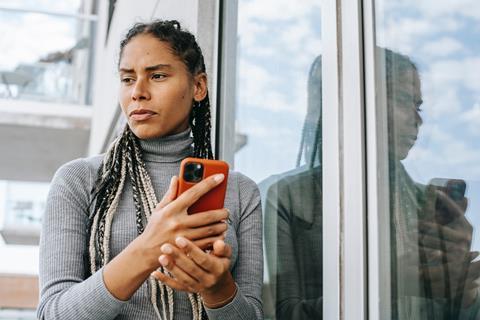Author of (Un)Certain: A Collective Memoir of Deconstructing Faith, Olivia Jackson gives an insight into her research and encourages us all to do better.

"It’s a dangerous thing to work for the church you love," Harry tells me. "It’s like finding out what they put in sausages." Harry, from UK, is one of 140 people I interviewed for my new book, (Un)Certain: A Collective Memoir of Deconstructing Faith. Many of them had had negative experiences of their churches and Christian communities, from having their honest questions silenced to being taught harmful theologies and experiencing severe spiritual abuse. The treatment Harry underwent led to a breakdown.
I’ve had a few people tell me, "No church is perfect/people are just too sensitive," but it’s more than that. Abi, from the USA, said: "I keep saying I’m lucky because I’ve only been hurt by people with good intentions, but I’m still hurt and I still have PTSD." Some of this harm is built into the system and theology. Plenty of women told me about the shaming they experienced within "purity culture", leading to marriage difficulties and conditions such as vaginismus. Others mentioned churches which pressured them to stay in abusive marriages.
Plenty of women told me about the shaming they experienced within "purity culture".
Of those I interviewed who were black or brown, every single one mentioned racism in majority-white Christian spaces. People told me what all those choruses about sin have done to their self-image and mental health. Mara used to lead worship at huge events across the USA, but said: "I can’t sing about how worthless I am anymore. It has affected me so deeply and profoundly to say this stuff over and over again, and I can’t do it, even for a quick paycheque."
Then there were those whose questions were more theological, especially when they encountered different views. Laura said: "I was brought up in an environment where speaking tongues was just weird, and nobody did it anymore because it stopped when the Bible finished being written. Then I visited churches where it was normal. That opened a little crack in the door to say, 'OK, people have different views on this. What do you do with that contradiction?'"
Of those I interviewed who were black or brown, every single one mentioned racism in majority-white Christian spaces.
Sincere questioning and doubt are part of the Christian tradition throughout history. Wrestling with theological diversity is part of the Jewish tradition Jesus knew. Controlling and coercive behaviour are condemned throughout the Bible. For an institution founded on love, following a saviour who cared for the most vulnerable, it is simply not good enough to dismiss those who ask questions or who say they have been harmed.
So where do people who go – those who have been badly treated or who have questions their church won’t or can’t answer? Of those I spoke to, very few remained in their original churches. Many had moved to more open churches where questions could be explored and pressures were fewer. Others needed to leave church entirely, with or without their faith: church was simply too damaging. Some got ordained, others left ministry. Some discovered a more expansive faith, others found new forms of spirituality or lost their faith entirely. But overwhelmingly we are finding hope, flourishing and community on the other side of our questions, and healing on the other side of spiritual trauma. Falling out of love with church isn’t the end of the world.
Get your copy of (Un)Certain: A Collective Memoir of Deconstructing Faith, by Olivia Jackson (SCM Press) online here.































No comments yet